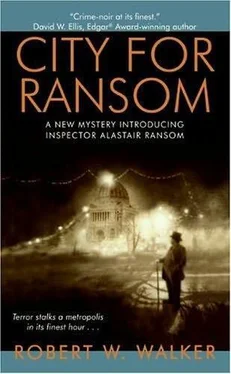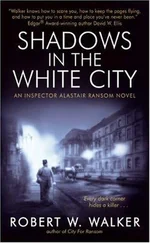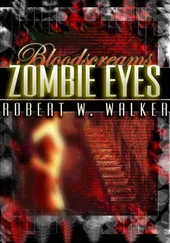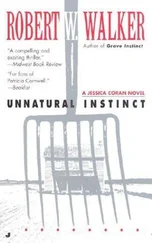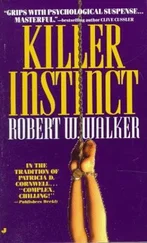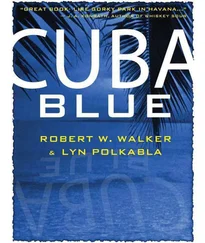City For Ransom
Robert W. Walker
Series:Inspector Alastair Ransom [1] Published:2005
Historical Mystery 19th Century

Growing up in Chicago in the fifties and sixties, I found a friend—a second mother, really—in Miss Evelyn Page, an extraordinary teacher of language and speech at Wells High, and when she made a gift of a small bookcase that I admired, she said, “You can thank me by filling it with books you’ve read.”
I arrogantly replied, “How ‘bout I fill it with books I write?”
She answered simply, “That’ll do as well. Fill it with your characters.”
“Deal.”
“Deal.”
Before she passed away, Evelyn Page knew I’d filled that bookcase twice over. She also knew that I was living my dreams—dreams she nurtured. A theater major and graduate of Northwestern University, she’d studied with Karl Malden, but she chose to become a teacher instead of Malden’s co-star. My good fortune, for she championed me and gave me the opportunity to go to NU when it was my turn. But more importantly, she gave me a license to be myself and the courage, early on, to believe in myself; to believe myself a writer of purpose. For this reason, wherever her soul resides, I send out this dedication to find her . . . for she so loved Chicago and her house on Chase and Sheridan Road, and no doubt, she would’ve treasured a copy of City for Ransom.
CHAPTER 1
Illinois Central Train Station, Chicago, June 1, 1893
Yanked from a heated card game to investigateanother murder, the third garroting in as many weeks, Inspector Alastair Ransom arrived angry. The rhythm his cane beat across the marble floor stopped when he hit a wall of odors—the winner: charred flesh. The smell dredged up memories of the Haymarket Riot and bombing, some seven years ago. The odors brought up another memory as well—one of a particularly grueling botched interrogation he’d conducted just before the infamous riot in Haymarket Square, a memory he’d hoped to have forgotten even more so than the labor riot itself.
But here it sat upon his mind, full-blown as if yesterday, thanks to this victim’s fetid demise.
In an irritatingly gruff voice that made Inspector Alastair Ransom’s hair stand on end, Dr. James Phineas Tewes shouted, “Inspector Ransom, finally, someone in charge.”
“Can I help you?”
“I insist on a scientifically accurate, thorough phrenological diagnosis on the dead boy’s cranium to determine his magnetic levels at the time of death.”
“Phrenological what?”
2
ROBERT W. WALKER
“I’m conducting a study, you see and—”
“Magnetic levels? What nonsense! Read the dead boy’s charred cranium? What possible good could your questionable art of reading skulls do either him or my investigation?
He’s dead, for God’s—”
“But Chief Kohler approved and a—”
“His head’s smoldering yet from being torched! G’damn you, Tewes! This is a murder investigation. You’ve no busi—”
“And your superiors, sir, sent me to examine—” Tewes stopped to catch another glimpse of the body, now half hidden by Ransom’s considerable girth. Despite the black, smoldering lump of flesh leaning against the column, Dr.
Tewes forged on. “I will make my observations and complete my mission here, Inspector! We’re conducting an experiment.”
Ransom tightened his teeth around an unlit pipe and tapped the floor with his cane. He scratched at his day-old stubble and stared long at the scrawny, parasitic scavenger everyone called a doctor, James Phineas Tewes—a little man of whom he thought little. He turned his back on Tewes to shout instead for his second in command. “Griff!
Griffin.”
“Yes, Inspector!” Griffin Drimmer called back.
“Get Keane in here to do the photographic work, so we can mop up this mess.” Ransom indicated a blackened, charred faceless body propped against a pillar at the Baltimore and Ohio side of the building, second-floor balustrade.
The marble floor around the body, also charred and blackened, told a tale in blood as it trailed from the men’s room to the pillar.
The corpse’s still smoldering head flopped forward, a quiet but echoing snap telegraphing a bone-cracking eruption at the terminus of the spine, incrementally giving way to the weight of the skull. The head had very nearly been cut off.
“You may ignore me, Inspector, but you can’t ignore this!” Tewes, a dapper man in topcoat, suit ascot, his mustache twitching, claimed to psychically read people’s heads CITY FOR RANSOM
3
as Gypsies read tea leaves or palms. But Tewes went to the extreme, claiming to diagnose illnesses and render cures to melancholia and other mental maladies with some sort of magnetic mumbo-jumbo in association with laying-on-of-hands. Little more than a snake-oil salesman.
Despite Ransom’s attempts to stifle Tewes, the so-called phrenologist continued to wave a note. The note had the expensive watermark representing Kohler’s office.
“Don’t be a fool, Ransom,” Tewes warned.
“Never, sir.”
“Don’t dare stand in my way. Not with this in my hand!
An express order from your superior.”
“You use the term superior too loosely, sir, and I don’t react well to threats, Doctor .” Ransom made the word doctor sound like quack .
“I know about you. Every law-abiding citizen in Chicago wants Kohler to give you the boot for your extravagant interpretations of the law,” Tewes began in a more sour tone.
“Your ill-treatment of prisoners, your questionable interrogation techniques.”
“Really now?”
“The stuff of dark legend. Everyone fearing you!”
“Makes my job easier.” Ransom gave a moment’s thought to his ill-gotten, half-deserved reputation—the half that remained in people’s minds. Tewes had kindly left out his addiction to gambling, tobacco, whiskey, quinine, and women.
“You can’t stop the march of science or progress, Inspector!”
“Science? Progress?”
“Police science, yes.”
“Really now?”
“I represent the hope that police operations improve evidence-gathering tech—”
“By paying out a handsome fee to the likes of you, Doctor?”
“You’re as rough a fellow as I was warned!”
“Aye, I am that.”
“And stubborn! Knowing that Kohler himself wishes my 4
ROBERT W. WALKER
participation on this case!” Tewes again waved the note in Alastair’s face. “For God’s sake, man. Read it!”
“Why? You’ve already revealed its content.” Ransom punctuated his words with the unlit pipe, jabbing at Tewes.
“Look here, my patience is in short supply, and you’ve no business here, mister!”
“This says otherwise!”
“You’re not affiliated with the Chicago Police force or Dr.
Christian Fenger’s Coroner’s Office. And if you dare get in my way again, I’ll have you arrested for obstructing an ongoing investigation.”
Tewes’s curled handlebar mustache twitched anew like a tadpole under the muted train station gaslight.
Ransom saw a uniformed copper and shouted, “O’Malley! Take Dr. Tewes here out of my sight.” Ransom turned his back on Tewes’s raised hand, the note still flourishing birdlike over his head as O’Malley gently guided Tewes off.
Читать дальше
